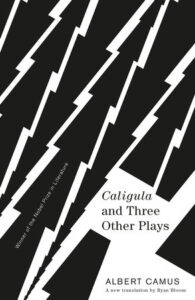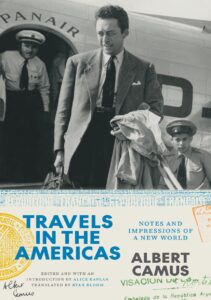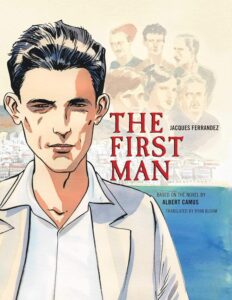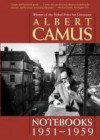
Areas of Interest: Literary Translation, Creative Writing, and Composition
Contact Information
Email: rbloom2@umbc.edu
Office: PAHB 439
Office Number: 410-455-2849
Biography
Ryan Bloom, Senior Lecturer, teaches Creative Writing, Composition and Literature courses at UMBC. His work has appeared in The New Yorker, The Paris Review, Tin House, PEN America, Black Clock, The American Prospect, and a variety of other publications and anthologies. His translation of Albert Camus’ Notebooks 1951 – 1959 was shortlisted for the French-American Foundation and Florence Gould Foundation Prize for Superior English Translation of French Prose. In 2014 he was awarded the Eli Cantor Fellowship by the Corporation of Yaddo, followed by a second endowed residency in 2019. He teaches at the University of Maryland, Baltimore County.
You can find more about his publications and other projects at
www.RyanBloom.net
Representative Publications
- Bloom, Ryan (translator). “Pride” by Albert Camus, Tin House, June 2017.
- Bloom, Ryan (translator). “The Silences of Paris” by Albert Camus, New England Review, April 2017.
- “‘Scuse Me While I Fuck the Sky,” Creative Nonfiction/In Fact Books, May 2016.
- “Oh, The PLaces You Will Go!” Guernica and PEN America, July 2015.
- “Naked as a Window,” Black Clock, September 2014.
- Bloom, Ryan (translator). “The Life of the Artist” by Albert Camus, The New Yorker, Page-Turner, August 2013.
- “One of Us,” The American Prospect, November 2012.
- “First in War, First in Peace,” Salon, October 2012.
- “Lost in Translation,” The New York, Page-Turner, May 2012.
- “Stranger No More,” The Baltimore Sun, May 2008.
Books

Caligula and Three Other Plays, Knopf / Random House (August 8, 2023).
Four thought-provoking masterworks for the theater by the Nobel Prize–winning author of The Stranger and The Plague, in a restorative new translation by Ryan Bloom that brings together, for the first time in English, Camus’s final versions of the plays, along with deleted scenes and alternate lines of dialogue.

Albert Camus, Travels in the Americas, Chicago University Press (April 5, 2023).
In March 1946, the young Albert Camus crossed from Le Havre to New York. Though he was virtually unknown to American audiences at the time, all that was about to change—The Stranger, his first book translated into English, would soon make him a literary star. By 1949, when he set out on a tour of South America, Camus was an international celebrity. Camus’s journals offer an intimate glimpse into his daily life during these eventful years and showcase his thinking at its most personal—a form of observational writing that the French call choses vues (things seen).

The First Man: The Graphic Novel, Pegasus Books, (October 2018).
This new illustrated of Camus’s final novel tells the story of Jacques Cormery, a boy who lived a life much like Camus’s own. This stunning, fully illustrated edition summons up the sights, sounds and textures of a childhood defined by poverty and a father’s death, yet redeemed by the austere beauty of Algeria—and the young protagonist’s attachment to his nearly deaf-mute mother.

Notebooks, 1951-1959
Ivan R. Dee, Inc., 2008
Withheld in France for twenty-nine years after his death, and now appearing in English for the first time, Albert Camus’ final journals give us our rawest and most intimate glimpse yet into one of the most important voices of French letters and twentieth-century literature. Fearing that his memory was beginning to fail him, Camus noted here his reactions to the polemics stirred by The Rebel, his feelings about the Algerian War, his sojourns in Greece and Italy, and a number of other topics.